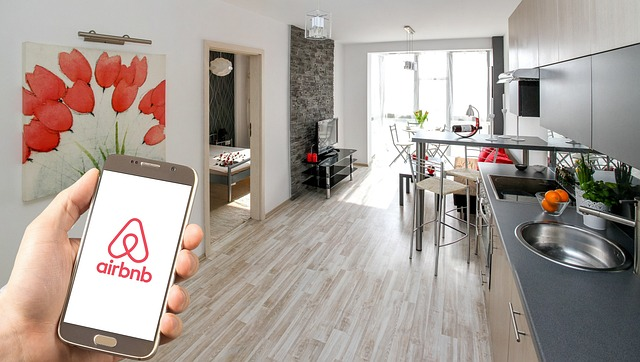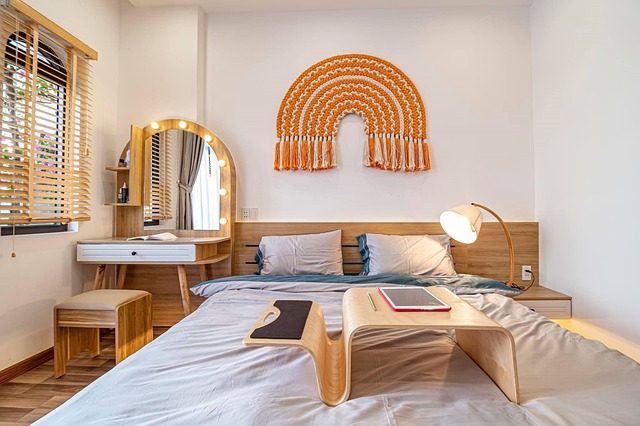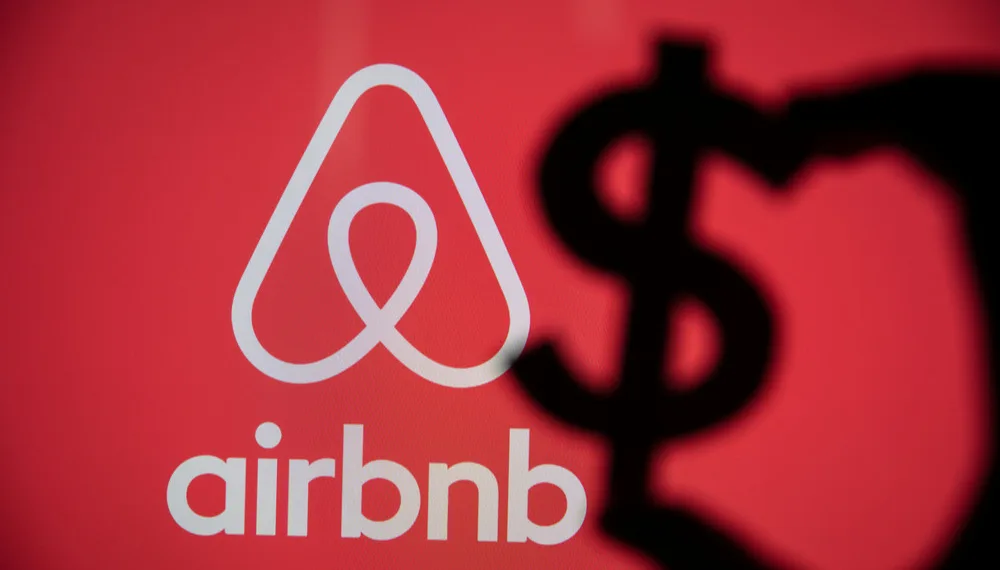Is Airbnb’s Fall a Sign of a Looming Housing Market Crash?
Airbnb, the popular online platform that connects travelers with hosts who offer short-term rentals, has been one of the success stories of the sharing economy.
The company, founded in 2008, now has over 4 million listings in over 190 countries and is valued at over $100 billion.
However, recent reports indicate that Airbnb’s business is experiencing a noticeable decline in major U.S. markets, including Phoenix, Austin, Nashville, Denver, New Orleans, Seattle, Orlando, and Myrtle Beach.
According to a tweet by Reventure Consulting CEO Nick Gerli on June 27, Airbnb’s revenues per available listing in these cities have decreased by up to 50% when compared to 2022.
Gerli attributed this collapse to a combination of factors, such as:
- The resurgence of COVID-19 variants and travel restrictions
- The oversupply of Airbnb listings and the competition from hotels
- The regulatory crackdown on short-term rentals by local authorities
- The changing preferences of travelers who seek longer stay and more amenities
In this blog post, we will explore some of the key aspects of Airbnb’s business model, its impact on the housing market, and its prospects for the future.
- Related Reading:
- 11 Best Apps That Pay You Real Money in 2023
- Download our free E-book today and start learning how to create wealth for yourself!
The Potential Impact of an Airbnb Collapse

According to Gerli, if Airbnb hosts face financial difficulties from the company’s recent revenue collapse alone, they may need to sell their properties to cover their mortgages.
This could lead to a potential ripple effect on the housing and real estate market.
A possible outcome is that there could be an increase in the number of available properties and a decrease in prices in areas where Airbnb has a considerable portion of the available housing stock.
Sam Randall, a spokesperson for Airbnb, disagrees with Gerli’s analysis and predictions, stating that they are not in line with Airbnb’s own data, hence questioning their accuracy.
According to its Q1 earnings report, Randall stated that Airbnb has experienced a higher volume of guests using its platform than ever before.
The speaker mentioned that due to an increasing number of people opting for flexible lifestyles, including travel and living in various locations, Airbnb is in a favorable position to capitalize on this trend.
According to other short-term rental market analysts, Gerli’s findings were disputed.
Jamie Lane, chief economist at AirDNA – a firm that provides short-term rental intelligence, stated that although Airbnb’s business was down nationwide, it only declined by 3.6% compared to 2022.
According to Lane, Airbnb’s revenue per available listing has increased in certain markets, including Myrtle Beach, which saw a 5.5% increase from the previous year.
Lane explained that each market had unique factors affecting its performance, such as seasonality, demand patterns, and supply dynamics.
These differences contributed to the variations observed.
The Impact of Airbnb on the Housing Market

It is not definitively clear how Airbnb is affecting the housing market.
It has been suggested that Airbnb decreases the availability and affordability of housing for long-term residents as it removes units from the rental market and increases prices, according to some studies.
On the other hand, some studies suggest that Airbnb has a beneficial impact on the housing market.
It expands the range and amount of lodging alternatives, promotes tourism and economic growth, and generates earning potential for property owners and real estate investors.
Airbnb is a phenomenon that is complex and constantly changing.
It has different effects on various markets.
It is possible that some Airbnb hosts may experience financial challenges and opt to sell their properties soon.
However, it is improbable that this alone will cause a housing market crash.
There are various factors that have an impact on the housing market, including interest rates, income levels, consumer confidence, population growth, and migration patterns.
Hence, it’s crucial to take into account the broader context instead of depending on eye-catching headlines or social media posts.
- Related Reading:
- How Rakuten Can Make You Rich
How does Airbnb work?

Airbnb is a website that links tourists with hosts offering different accommodations like rooms, apartments, houses, or castles.
On Airbnb’s website or app, travelers can browse millions of listings, apply filters for location, price, amenities, and reviews, and book their stay online or through a mobile device.
On Airbnb’s platform, hosts can list their properties for free, choose their own prices and availability dates, and communicate with guests before and during their stay.
Airbnb earns revenue by collecting fees from hosts and guests for each reservation.
For every booking made through Airbnb, hosts are charged a service fee of 3%.
When booking a property through Airbnb, they are charged a service fee of up to 15%. This fee is used to cover the expenses of operating Airbnb’s platform and providing customer assistance.
In addition to lodging, Airbnb provides other travel and hospitality-related services and products.
Experiences: Airbnb’s platform offers the opportunity for travelers to book activities hosted by local experts or celebrities.
Adventures: Local guides will host multi-day trips that offer accommodation, meals, and various activities.
Luxe: A selection of luxury properties and services that come with custom concierge and travel planning.
Plus: A selection of verified properties that meet high standards of quality, comfort, and style.
HotelTonight: This is a hotel booking app that provides exclusive discounts for small and luxurious hotels to customers who book at the eleventh hour.
Airbnb for Work: A suite of tools and services that help businesses manage their travel and accommodation needs.
Airbnb.org: A non-profit organization that partners with hosts, relief organizations, and communities to provide temporary housing for people in need.
- Related Reading:
How Airbnb Affects the Housing Market by the Numbers?

The effect of Airbnb on the housing market is a topic of much debate and controversy.
This is because various stakeholders have different interests and perspectives.
Advocates and opponents have their own respective arguments concerning the effect of Airbnb on the housing market.
Airbnb reduces the availability and affordability of housing for long-term residents
Airbnb is often criticized for making it harder and more expensive for local residents to find long-term housing, particularly in popular tourist spots or cities.
This argument assumes that hosts on Airbnb choose to convert properties that would normally be available for long-term rentals into short-term rentals due to the higher profitability of short-term renting.
The decrease in available housing for permanent residents leads to an increase in housing prices and rents.
In addition, Airbnb hosts may inadvertently contribute to gentrification, displacement, and social segregation by accommodating affluent travelers who may have different preferences and requirements than the local community.
Some of the evidence that supports this argument includes:
- According to a study conducted by McGill University, Airbnb eliminated 31,000 rental units from the long-term rental market in 22 cities across the United States in 2023. This amounts to 1.4% of the total rental units available. Additionally, the study deduced that Airbnb raised rents by an average of 1.4% in these cities, which equates to an annual increase of $616 for the median renter.
- A study by researchers at UCLA found that Airbnb increased rents by 3.9% in Los Angeles between 2010 and 2023, equivalent to $89 per month for the median renter. The study also found that Airbnb increased house prices by 14% in Los Angeles during the same period, equivalent to $112,000 for the median homeowner.
- According to research conducted by MIT scientists, Airbnb caused a 2.8% rise in rents in Boston from 2012 to 2023, resulting in an additional cost of $178 per year for the average renter. The same research also revealed that Airbnb caused a 6% increase in house prices in Boston during this time, equivalent to $30,000 for the median house owner.
Airbnb Increases the Supply and Diversity Options for Travelers by the Numbers
Airbnb is great because it offers travelers a wider range and variety of accommodation options, particularly in areas where hotels are not plentiful or are pricey.
The argument assumes that Airbnb hosts provide distinctive and genuine experiences that meet the various preferences and financial capacities of travelers.
The rise in travel and tourism creates more demand and boosts economic growth, providing opportunities for hosts and local businesses to earn income.
This argument is backed up by some evidence, including:
- According to a study conducted by Oxford Economics, Airbnb contributed $86 billion to the overall economic activity and created 1.2 million jobs across 30 different countries in 2023. Additionally, the study projected that Airbnb guests spent around $25 billion on local goods and services, which is approximately $95 per day for each guest.
- A study by researchers at Penn State University found that Airbnb increased hotel occupancy rates by 2.8 percentage points in Texas between 2008 and 2023, equivalent to an additional 1 million room nights sold per year. The study also estimated that Airbnb generated $196 million in tax revenue for Texas in 2023, equivalent to $5.5 million per month.
- According to a study conducted by Harvard Business School, between 2012 and 2023, Airbnb raised consumer welfare by $41 billion in Europe, which means a benefit of $1,100 per traveler per year. The study also found that the prices of hotels were reduced by an average of 6% during this time, which equals a savings of $15 per room per night.
What are the Prospects for Airbnb’s Future?

Airbnb’s future prospects depend on several factors, such as:
- The recovery of travel demand after the COVID-19 pandemic
- The competition from other platforms and players in the travel industry
- The regulation and taxation of short-term rentals by local authorities
- The innovation and diversification of its products and services
- The satisfaction and loyalty of its hosts and guests
In the future, Airbnb may face both challenges and opportunities.
Opportunity: The competition from other platforms and players in the travel industry
Other platforms and players in the travel industry, such as pose competition to Airbnb.
- Other online travel agencies (OTAs), such as Booking.com, Expedia, and Tripadvisor, offer a variety of accommodation options, including hotels, vacation rentals, and alternative lodgings.
- Other short-term rental platforms, such as VRBO, HomeAway, and FlipKey, focus on vacation homes and cater to different segments and markets.
- Other sharing economy platforms, such as Couchsurfing, TrustedHousesitters, and BeWelcome, offer free or low-cost accommodation options in exchange for social or cultural exchange.
- Other hospitality brands and operators, such as Marriott, Hilton, and Accor, have launched their own short-term rental brands or platforms, such as Homes & Villas by Marriott International, LXR Hotels & Resorts by Hilton, and Onefinestay by Accor.
Airbnb’s competitive advantages over its rivals

Its large and diverse network of hosts and guests creates a strong network effect and a loyal community.
- Its distinctive brand identity and reputation appeal to travelers who seek unique and authentic experiences.
- Its innovative and user-friendly platform and app, offer a seamless booking and hosting process and a variety of features and services.
- Its data-driven and customer-centric approach enables it to understand and anticipate the needs and preferences of its hosts and guests.
Airbnb also has some opportunities to differentiate itself from its competitors, such as:
- Expanding its presence and offerings in emerging markets, such as China, India, and Latin America, where travel demand is expected to grow rapidly in the coming years.
- Leveraging its expertise and assets in the short-term rental market to enter or grow in other segments or markets, such as luxury travel, business travel, or long-term rentals.
- Developing new products and services that enhance its value proposition and customer experiences, such as experiences, adventures, luxe, or hotel tonight.
Challenges: The regulation and taxation of short-term rentals by local authorities
The regulation and taxation of short-term rentals by local authorities is one of the major challenges that Airbnb will face in the future.
Airbnb operates in a legal gray area in many jurisdictions, as short-term rentals are subject to different rules and regulations depending on the location, type, and duration of the stay.
Local authorities frequently have concerns and issues related to short-term rentals.
This message is already clear and does not require any improvement.
This refers to the process of collecting and paying taxes, fees, and levies.
The goal is to create a fair market for all providers of accommodation and generate revenue.
Limits, caps, or bans on short-term rentals are enforced to ensure that long-term residents have access to affordable housing and to prevent issues like noise, nuisance, or congestion.
Airbnb has encountered legal issues and disagreements with local authorities in several markets like New York, San Francisco, Paris, Berlin, and Barcelona.
Regulators, competitors, and activists have fined, penalized, and sued Airbnb.
To tackle these issues, Airbnb has implemented various techniques.
We need to work together with local authorities to create specific and just guidelines about short-term rentals.
Sharing data and information will make it easier for everyone to follow these rules and enforce them properly.
The organization aims to teach and enable the community in which it operates to comply with local laws and rules and to behave responsibly and respectfully as hosts.
The organization promotes its interests and values by advocating and lobbying, and it also encourages its host community and guests to support its cause.
Airbnb anticipates that regulations will continue to change and differ in different areas, as local governments strive to address the concerns and requirements of various groups.
Airbnb anticipates that regulations will gradually become more favorable and consistent over time.
This is because many local authorities are beginning to acknowledge the advantages and opportunities that short-term rentals offer their communities.
Final Thoughts On Airbnb Collapse
The platform Airbnb has transformed the travel and hospitality industry with its disruptive and innovative approach.
Airbnb provides lodging options for travelers and the chance for people to earn money by renting out their own properties.
Additionally, the platform contributes to local economies and creates social benefits for communities.
Airbnb may encounter difficulties and unknown factors in the future, even though it has its advantages.
- The recovery of travel demand after the COVID-19 pandemic
- The competition from other platforms and players in the travel industry
- The regulation and taxation of short-term rentals by local authorities
- The innovation and diversification of its products and services
- The satisfaction and loyalty of its hosts and guests
The effect of Airbnb on the housing market is a complex and contested issue, as its impact varies across different markets and segments.
The presence of Airbnb may either limit the number of affordable housing options for people who live in an area for a long period of time or provide a wider range of lodging choices for tourists.
Airbnb’s impact on the housing and real estate market could go either way – it may cause a crash or contribute to economic growth and development.
In essence, it’s important to analyze and evaluate Airbnb as a constantly changing phenomenon.
If you’re considering buying or selling in the short-term rental market, or just curious about the Airbnb business model, it’s best to avoid sensationalist headlines and tweets and focus on the bigger picture.
Frequently Asked Questions
Q: What are some of the factors that could contribute to a housing market crash if Airbnb were to collapse?
A: Some of the factors that could contribute to a housing market crash if Airbnb were to collapse include:
- A decline in demand for housing. If demand for housing were to decline, this would lead to an increase in the supply of homes on the market, which could drive down prices.
- A rise in interest rates. If interest rates were to rise, this would make it more expensive for people to buy homes, which could lead to a decline in demand.
- A recession. If the economy were to enter a recession, this could lead to a decline in demand for housing, as well as an increase in the supply of homes on the market.
Q: What are some of the factors that could prevent a housing market crash if Airbnb were to collapse?
A: Some of the factors that could prevent a housing market crash if Airbnb were to collapse include:
- Strong demand for housing. If demand for housing remained strong, even with an increase in supply, prices would likely not fall significantly.
- Government intervention. The government could intervene to prevent a housing market crash. For example, the government could provide tax breaks to homebuyers or offer loan guarantees.
- Other factors. There could be other factors that would prevent a housing market’s crash, such as a strong economy or low-interest rates.
Q: What is the likelihood of a housing market crash if Airbnb were to collapse?
A: The likelihood of a housing market crash, if Airbnb were to collapse, is uncertain. There are a number of factors that could contribute to a crash, but there are also a number of factors that could prevent it.
Ultimately, the impact of an Airbnb collapse on the housing market would depend on the specific circumstances.














